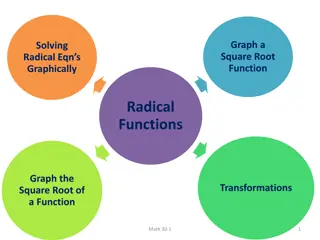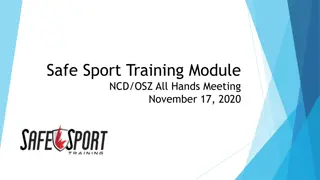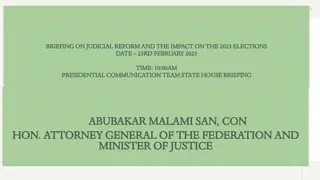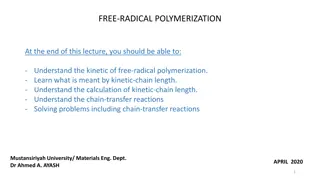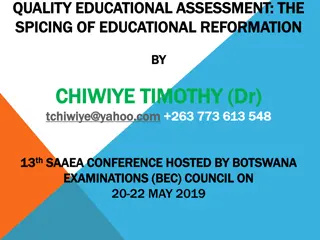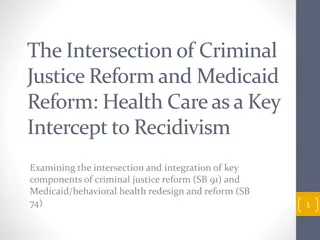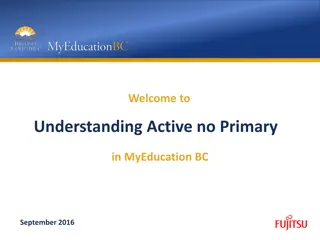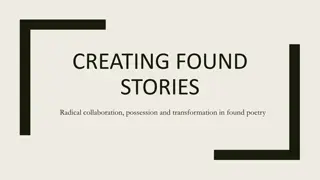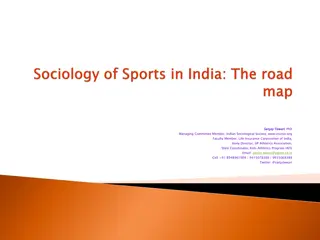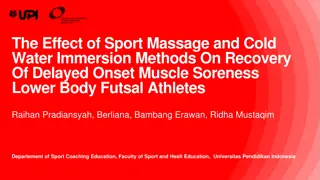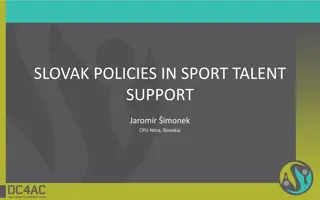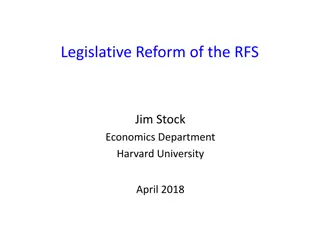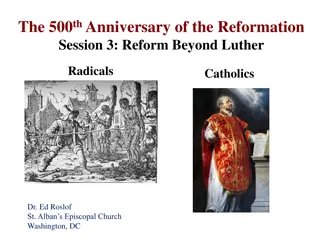Impact of Radical Policy Reform on Primary School PE and School Sport
The impact of radical policy reform on primary school PE and school sport is highlighted through changes in funding allocation, restructuring of organizational frameworks, and a shift towards direct reporting mechanisms. Despite positive initiatives like the PE and Sport Premium, challenges such as teacher perception and resource allocation persist, requiring a nuanced approach towards improving primary school physical education and sports programs.
Download Presentation

Please find below an Image/Link to download the presentation.
The content on the website is provided AS IS for your information and personal use only. It may not be sold, licensed, or shared on other websites without obtaining consent from the author. Download presentation by click this link. If you encounter any issues during the download, it is possible that the publisher has removed the file from their server.
E N D
Presentation Transcript
Comply or Fail: Primary School PE Subject Leaders and the PE and Sport Premium for Primary Schools Matt Coldrey Lecturer in Sports Coaching, PE and School Sport HE Sport Matt.Coldrey@Hartpury.ac.uk
What is the impact of radical policy reform on primary school PE and school sport? School Sports Partnerships (SSP) ( 155 million per annum) Centrally funded organisations comprising of experts Cut in 2010 by Coalition Government as deem too wasteful in times of austerity School Games ( 28 million per annum) - 2010 Competition framework split into 4 levels (inter, district, county, national) Designed for Olympic Legacy based on competitive sports and festival model PE and Sport Premium for Primary School ( 150 million per annum) 2013 8000 + 5 per pupil ring-fenced funding directly to primary schools Regulated via Ofsted and County Sports Partnerships Cutting out bureaucracy of the SSPs primary schools now reporting directly to the Department for Education (Javid & Timpson, 2014; Department for Education, 2015; Mackintosh, 2014; Phillpots, 2012)
The context of primary school PE and sport Traditionally lacking in specialist PE and sport expertise Average primary school classroom teacher works a 55 hour week, and gets paid for a 33 hour week. A large proportion of primary school PE and sport was outsourced to external providers Pupil progress in primary school PE rated as requires improvement in 2009 by Ofsted (Department for Education 2014; Ofsted, 2009; Griggs, 2010)
Great news for primary school PE and sport! But why were the teachers I worked with not so positive about this new funding?
Methodology Fallibalist perspective Pragmatism Looking at what works in practice Exploring the relationship between ideology and practice Observation -> theory -> testing of theory Desire to produce socially useful knowledge A qualitative approach Analysis of school websites, Ofsted survey data, semi structured interviews 5 PE Coordinators interviewed Focus on the interaction between the individual and the context Data analysis Abductive reasoning create a theory based on the simplest explanation of observation Themeatic Contextualising patterns across the narrative (Teddlie & Tashakkori, 2009)
The findings Increased time managing the policies (less time teaching) Increases in managerial and administrative tasks Organising coaching, CPD, events, competitions, curriculum development etc. Adding to already high workload Increase in accountability and freedom simultaneously Lack of centralised and reliable support for the spending of the premium. Increased outsourcing of primary school PE and school sport to sports coaches
Ideological impact Ideological nature of the funding restructure created an Asymmetric Power Model Government setting targets for schools to meet which they have no power over Outsourcing to an unregulated and inconsistent market of providers Coaches with minimal qualifications and experience delivering trained teachers (lowest cost) Increase in administrative and managerial tasks New Public Management Central and impartial support structure no longer there Management of inconsistent providers Rise in accountability and responsibilisation (Goodwin & Grix, 2011; Evans, 2014; Wright, 2014 Stevenson & Wood, 2014)
Moving from problems to solutions Lack of expertise, choice from an unregulated market and unbearable workload combine to make the job difficult for PE subject leaders Regulate the market of providers to quality assure (task, not ego, orientated) Provide bespoke and impartial advice away from financial incentives Neoliberal ideology of consumer choice and outsourcing driving up quality and efficiency through competition an ideological fantasy Reconsider the positioning of the funding and provide better expert training for both providers of PE provisions and existing teachers The responsibilisation of primary schools through the funding structure and accountability framework shift bureaucracy of the SSPs onto the PE subject leaders Allocate time for PE subject leaders to complete the increase managerial and administrative tasks they now face (Goodwin & Grix, 2011; Evans, 2014; Wright, 2014)
Key references Department for Education (2014). Teachers workload diary survey 2013 Research report February 2014. Department for Education. Goodwin, M., & Grix, J. (2011). Bringing structures back in: The governance narrative , the decentred approach and asymmetrical network governance in the education and sport policy communities. Public administration, 89(2), 537-556. Griggs, G. (2010). For sale primary physical education. 20 per hour or nearest offer, Education 3- 13: International Journal of Primary, Elementary and Early Years Education, 38(1), 39-46 Mackintosh, C. (2014). Dismantling the school sport partnership infrastructure: findings from a survey of physical education and school sport practitioners. Education 3-13, 42(4), 432-449. Phillpots, L. (2013). An analysis of the policy process for physical education and school sport: the rise and demise of school sport partnerships. International journal of sport policy and politics, 5(2), 193-211. Stevenson, H., & Wood, P. (2014). Markets, managerialism and teachers work: the invisible hand of high stakes testing in England. International Education Journal: Comparative Perspectives, 12(2). Teddlie, C., & Tashakkori, A. (2009). Foundations of mixed methods research: Integrating quantitative and qualitative approaches in the social and behavioral sciences. Sage. Wright, A. (2012). Fantasies of empowerment: mapping neoliberal discourse in the coalition government s schools policy. Journal of Education Policy, 27(3), 279-294.
Workload implications Increase, haha, definitely increase. I spend so much time trying to manage all of the aspects of the new policies like getting coaches in to do this, finding out what other teachers want and need, entering teams into tournaments, it s crazy the workload now. And the thing is, all this extra time I have to spend managing all of these policies is less time I get to teach or prepare for lessons, it s not fair really. It s so much hard with us being a small school as well, I don t really get any help with it all within the school and the head just relies on me to get it all done.
Freedom and central control I think in a way that is the case, but I think the freedom is great because you can target in your school what you think is going to have that impact. Uh, no, no no, and it wasn t. What it is, is that she kind of I suppose just trusted me to get on with what needed to be done, teacher knew that they could come to me. If I heard murmurings, like particularly gymnastics was an area where everybody was very uncomfortable about teaching, then I would feed that back to [the head teacher] and [the head teacher] would say, actually I want to spend the funding on this or she d say great, just double check, send out a little survey to the teachers and check it is gymnastics . So it s quite collaborative really.
Lack of support I don t feel as though there s been a huge amount of support centrally. There s been some guidance released on what s good management of funding would be. And Ofsted had released some guidance as well which we ve referred to about a good way of spending, or an acceptable way of spending the funding, and we ve tried to fit in those criteria.
Outsourcing to an unreliable market and responsibility Ultimately the head, ultimately. But as a class teacher, as a subject leader, you d take on some of that responsibility for example [the coaching company], I mean almost within the first few weeks I was like oh this chap, he s not very good but nothing s been done about it and I ve been back and said, he s not really meeting the needs. At that point now, it s her responsibility.





